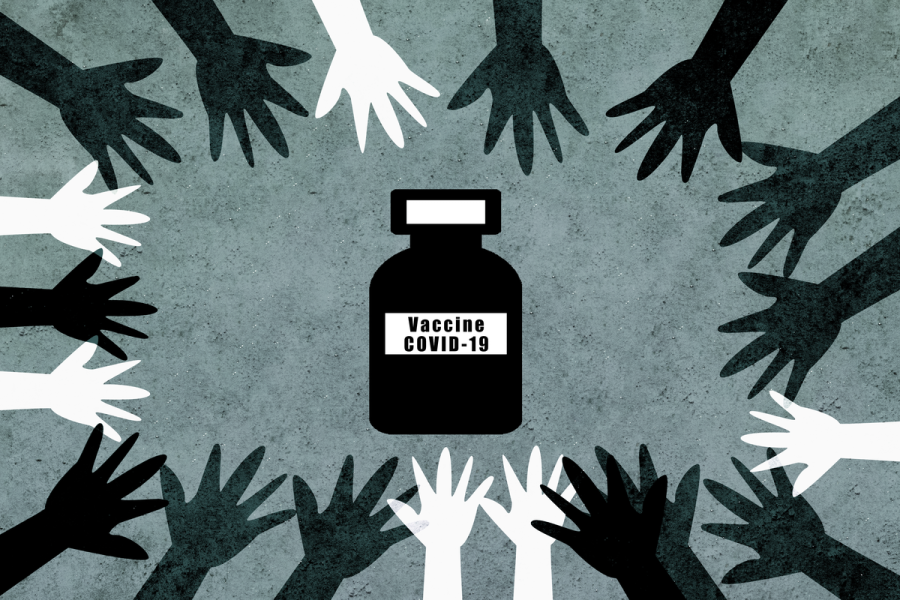Columns
Shame on global agencies
Intergovernmental organisations have failed to counter vaccine nationalism.
Achyut Wagle
The wrath of Covid-19 with its new recalcitrant variants engulfs the developing world. The richer countries, with their disposable resources, better health service infrastructure and science, coupled with their virtual monopoly on Covid-19 vaccines are gradually coming out of the woods. But all those countries, communities and sections of the society that fall on the wrong side of the have-and-have-not divide are in dire straits in the battle against the virus pandemic. Apparently, the only hope to save these poor billions rests on sooner availability, access and affordability of the vaccines, which now increasingly looks like a Sisyphean dream.
Vaccine inequality
The global vaccine statistics are appalling. Out of 1.63 billion doses of novel coronavirus vaccines administered by May 22, 84 percent of the shots have gone to high and upper-middle-income countries. Only 0.3 percent of doses went to low-income countries. Several poor countries are yet to get even the first dose of any brand of duly approved vaccines. Wealthier countries like the United States, Canada, Britain and several European and Gulf countries have by now vaccinated somewhere between 50 and 100 percent of their population, while the countries like Nepal are yet to touch the 10 percent mark.
The richer countries applied every weapon possible to protect their interests during this crisis. They placed massive orders to procure, far more than they actually required, no sooner than the vaccine development processes showed optimistic signs of a useful outcome. Many countries have hoarded millions of doses of vaccine brands which they are not even likely to give their citizens. Instead, they will likely use these as a tool of diplomacy and strategic influence.
The obstinate position on intellectual property rights by vaccine developers has defied the concept of global public goods even for life-saving products like the Covid-19 vaccines. This has substantially reduced the potential production capacity of these vaccines which in turn has constrained access to the same, particularly for the poor and vulnerable. The countries with large production facilities like India have employed strict vaccine nationalism, prohibiting export until their domestic demands are fully met. It is apparent that even when export restrictions are relaxed, the producers are bound first to comply with large-sized contracts signed, again, with richer countries than to take care of the needs of the poorer, smaller nations.
The low-income countries are not even able to buy the Covid-19 vaccines of their choice even if they could manage funds at the cost of other developmental needs. They have no other options than to wait for some mercy from the same set of selfish rich countries and so-called global organisations that are, for all practical purposes, controlled by the rich nations themselves.
Withered hopes
Initially, low-income countries were optimistic about receiving support from the COVAX initiative which promised to distribute 2 billion doses of Covid-19 vaccines to them. So far, it has delivered only 69 million and now seems to have raised its hands as the producing countries are unwilling to supply even to the programme sponsored by the World Health Organisation. What is most alarming here is that large global organisations like the United Nations and WHO have appeared clueless as well as helpless in the face of vaccine nationalism. This makes their very existence questionable.
The annual salary of the WHO director-general is at least twenty times higher than that of the prime minister of Nepal. It may appear to be a crude comparison, but if the director-general, like our prime minister, has no other option but to plead with the merciless bullies for support, what is the justification behind the continued existence of the WHO? The inability of these so-called intergovernmental organisations to ensure at least some degree of equity is shameful. The same applies to the umpteen number of international non-governmental organisations now in hibernation.
Beggars have no choice
As the Covid-19 cases and resultant deaths spiralled up during the second wave in South Asia, many countries tried to publicise their humanitarian selves by sending support, which looked significant. Nepal also received support from the European Union, the United States and Spain, among others. This included oxygen-support equipment, ventilators, protection gears etc. These supplies are certainly important. But, what was most important but conspicuously absent from these large aid packages are vaccines or the commitment to support access to them.
The countries that have already contributed through the Global Alliance for Vaccines and Immunization (Gavi) for COVAX are now emphasising that countries liked Nepal should aim to access the COVAX quota facility itself and the same would be counted as their support since they are already part of the alliance. Being at the receiving end, hapless countries like Nepal have no option to accept whatever the donors wished to contribute.
The vaccine crisis is unlikely to be resolved soon. As the possible newer variants of the novel coronavirus pose graver threats, the citizens in low-income and poor countries are compelled to die in desperation. When capable individual countries are preoccupied with their self-interest more than humanitarian consideration, it is certainly the responsibility of the multilateral agencies like the United Nations system to prove their mettle as effective and impartial entities in delivering justice to the deprived part of the world in particular.
Unfortunately, at present, it appears as if humanism has effectively ceased to exist. Or, it is as if only reinforcing the barbaric definition of humanism itself which in practice puts the value of a life born in richer countries or societies higher than those cursed to be descended in penury and destitution. This is perhaps how the Covid-19 pandemic is manifesting the new normal, for better or worse. The agencies that put themselves on the saddle of global governance must take this phenomenon into account, overriding the selfish motives of the barbarians.




 9.6°C Kathmandu
9.6°C Kathmandu















